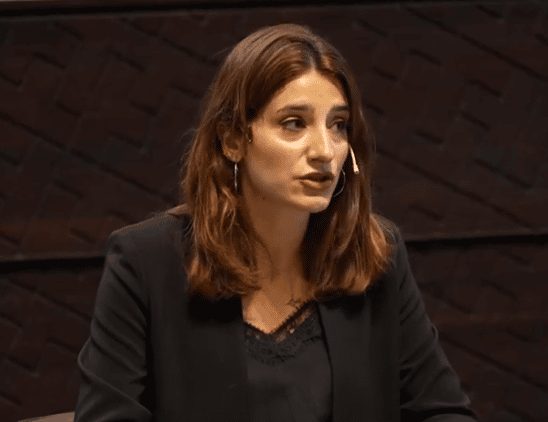A New York Times headline from last October said it as plainly as possible: “How Corruption Ruined Lebanon.” The article by Rania Abouzeid goes on, “The deadly port blast, the triple-digit inflation, the energy shortages – Lebanon’s many crises have a shared root: misrule by a self-dealing elite.”
Six years earlier, Serena Ibrahim was 23 years old and working as an architect when she joined the mass protests during the 2015 Waste Crisis. Beirut’s only landfill had closed without a replacement, and within days garbage was piled in the streets, stored under bridges and dumped in empty lots.
“I remember that day very well. I was at the protest and a small bomb hit me on foot. Then I felt the gas in my nose. The kind of gas that makes you cry,” Ibrahim recalls. “This was the day I decided to change my path.”
“I knew that the traditional ways to fight corruption are not sufficient. Only working on policies and laws is not enough,” Ibrahim told WNN. “We need more innovation. We need to communicate anti-corruption messages in a different way. We need to use social innovation and collective intelligence.”
Ibrahim left architecture behind, called dozens of her friends and contacts, and invited them to join her in a new kind of anti-corruption organization.
“I invited all of my friends and said, ‘I need your help. I cannot do it alone,’” she says. “I thought they would say I was dreaming too big. But 50 people came to the first meeting.”
That was 2018. Today, Ibrahim’s Youth Against Corruption – “YAC”– is among the country’s most dynamic NGOs. “We have had hundreds of volunteers and have reached 3,000 young people in Lebanon,” she says. “YACtivists,” according to the group, “have the humility to learn about corruption, the creativity to design innovative solutions, the integrity to step up to their values, and the courage to break the corruption chain.”
YAC’s many campaigns and projects include a YACathon, where young people come together to develop technology- and innovation-based solutions to corruption. At a YACathon held earlier this month, 10 teams worked on their ideas for three days, with four groups chosen as winners. The 2021 YACathon was called Lebanon’s first-ever national anti-corruption event.
The YACademy’s FASADUCATION program (“Fasad” is Arabic for corruption) includes courses and lectures on topics including corruption in the energy, water, transportation and health-care industries; corruption and the environment; and social innovation. The curriculum is being shared with schools and universities, Ibrahim said, and hundreds of people have participated so far.
Despite the organization’s results, Ibrahim says it’s not nearly enough. “We need hundreds or thousands of YACs in order to have complete change in Lebanon.”
One of the main problems, she says, is the Taif Agreement, which introduced major amendments to Lebanon’s Constitution when the civil war ended in 1989.
“The Constitution was conceived in a way to have a country that is very proper to corruption,” Ibrahim said. “Even how laws and the Constitution were designed, how religious sects operate – they all enable corruption. You feel that Lebanon is a playfield for big companies. You have to be corrupt to survive.”
‘Dream, Thrive and Compete‘
This past June, Ibrahim was invited to share her experiences at the World Justice Forum in The Hague. Here is an excerpt of her speech delivered at the Peace Palace, home of the UN International Court of Justice:
“We all know that the future of youth resides in the hands of those who have the power today to decide what kind of quality of life we as youth will have tomorrow. But unfortunately very little effort has been made and not enough bold moves have been taken to progress on the justice and anti-corruption agenda.
“It’s very serious. I am screaming today on behalf of youth not only in Lebanon, but for youth everywhere in the world suffering from this problem. We need bolder, fairer and more effective prosecution of corrupt leaders in countries where the judicial system is not independent and where corruption is legalized.
“Today we are obliged to fight for a future where people don’t die outside hospital doors because governments mismanaged public resources and revenues. For a future where young people don’t wake up unmotivated, don’t wake up depressed, and don’t wake up with no purpose.
“Instead, we fight for a future where they can dream, thrive and compete on the international level in the field that they love. For a future where access to justice and basic human rights is not a topic that we discuss in forums, but a topic from the past that is already solved.”
